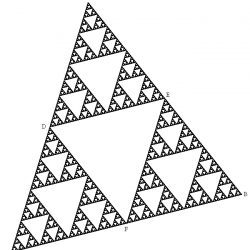 Happiness is one of the many emotions and states that human beings experience in this life and is associated with a feeling of fulfillment, joy, enjoyment and fulfillment..
Happiness is one of the many emotions and states that human beings experience in this life and is associated with a feeling of fulfillment, joy, enjoyment and fulfillment..
As with all emotions, happiness has a physiological explanation, the result of fluid neural activity in which internal and external factors interact with each other, stimulating the limbic system, which is one that is made up of various brain structures such as: the thalamus, the hypothalamus, hippocampus, amygdala, septum, corpus callosum and midbrain and on which the function of responding to the emotional stimuli that requires it rests. In this sense, the participation of certain substances, such as dopamine, a neurotransmitter involved in most of the phenomena that generate pleasure, such as happiness and reward itself, stands out. That is why certain drugs that act on brain circuits connected by dopamine are related to well-being, as is the case with most modern antidepressants.
Meanwhile, happiness It is not the same for everyone and this is because all human beings are unique and unrepeatable, which leads us to have different aspirations, ambitions and goals in life, which will also have a lot to do with the achievement or the end to which we humans tend, which is none other than to achieve, in what we do and together with the environment affective that we have chosen, happiness.
So, it will be because of these differentiations typical of the human species that for some, for example, marrying the person they love is equivalent to happiness, but for others this does not imply happiness and if it is, embarking on a trip to a destination that he always longed for. Also and following this same path, there are people who are happy living a life without many shocks and changes, on the other hand, there are others who believe that a routine life without emotions or adrenaline is equivalent to a frustrated existence, the main cause of unhappiness as they say.
From this it follows that happiness is an internal process that will depend more on the ideals of life that we have and have proposed, rather than on a social convention imposed by the society in which we live and this is very evident on the basis that that that makes me happy, can and does not have to make those who are close to me happy. This apparent contradiction occurs on all scales of human existence, from the inner world of each human being, through couples, nuclear families, small communities and even nations. In this context, phenomena such as philanthropy, altruism or faith are considered tools that basically seek to achieve personal happiness in the search for the happiness of others, perhaps one of the most noble paths in this sense.
However, it is prudent to differentiate joy from happiness, since it is postulated that happiness requires a rational sublimation of emotions. Thus, an animal can be happy or happy, but it is difficult to determine if it is happy. On the other hand, a human being can be both cheerful and happy, or cheerful but not yet happy.
In any case, it is appropriate to recognize that happiness will not only depend on the great aspirations that a person can realize, but that the little things of the day to day, as well as the solution of those daily aspects that arise as tiny challenges will also contribute to make a person more or less happy. Reality, far from constituting a permanent obstacle to achieving happiness according to subjective appreciations, perhaps represents a prodigious tool to achieve this goal of life to which every individual aspires, in a personalized way or on the basis of the community from which they be part.









